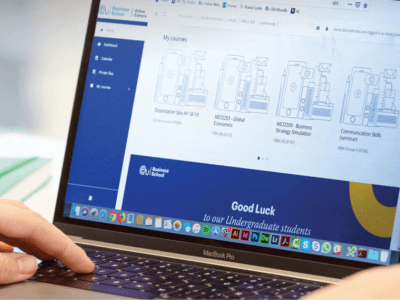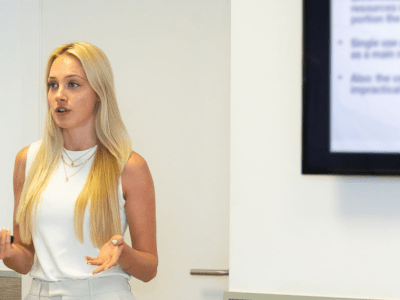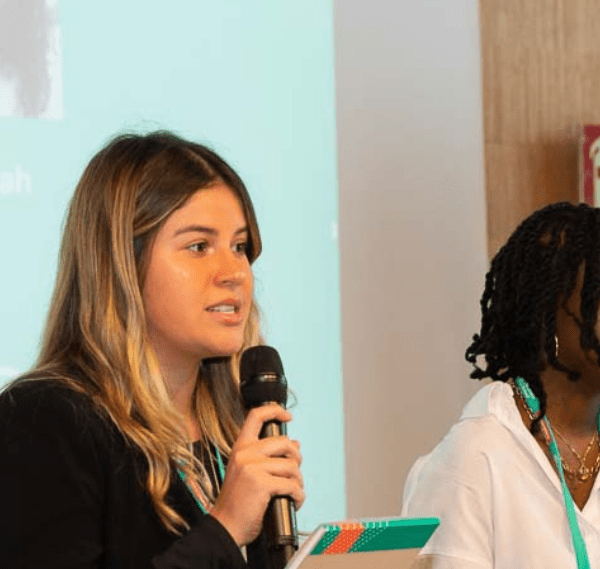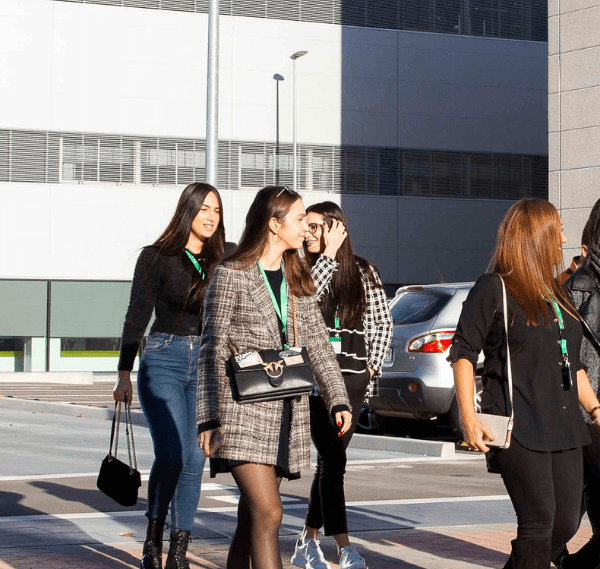As it stands, 91% of packaging ends up in landfill or discarded in the environment. And single use plastic isn’t the only packaging material causing a problem. For packaging to be sustainable it needs to take into account the impact it has on the planet at every stage of its life cycle, including carbon released in production, cost in terms of deforestation, ability to biodegrade or decompose, and impact on the health of humans, animals and plants. Microplastics have been detected in rivers, in fish and in the human body; the packaging problem is urgent and needs to be addressed. But it’s not straightforward. Even the seemingly simple question of plastic versus paper requires some serious thought.
Businesses need to take responsibility for cleaning up this mess. That’s the opinion shared by 74% of consumers who believe that CEOs should lead the charge on change rather than waiting for governments to impose it.
In this post, we will highlight how seven companies are pushing boundaries to package their products sustainably.
1. Nestlé Wraps its Yes! Bars in Paper
Nestlé has created a paper wrapper for its Yes! bars, another step for the FMCG giant towards its commitment to making all packaging recyclable or reusable by 2025. Given that the Swiss company owns more than 2,000 brands, that’s a big promise to make.
Until now, so-called shelf-stable snacks have only been able to be packaged in plastic films and laminates. According to the brand, this innovation “has unlocked the potential for recyclable paper packaging to be widely used in the confectionery industry.”
This is just one of the multinational’s initiatives to make good on its sustainability promises. Nestlé has also announced a CHF 2 billion investment to develop a system for creating food-grade recycled plastics, and to form a venture fund focused on supporting start-up companies developing innovative packaging solutions.
2. Colgate Launches the First Recyclable Toothpaste Tube
By 2025, all Colgate toothpastes will be sold in recyclable tubes. The company has found a way to make #2 HDPE plastic soft enough to squeeze, an innovation that has the potential to keep billions of tubes out of landfill. Although still virgin plastic, #2 HDPE plastic is designed to be circular, meaning that after your toothpaste tube is recycled, it can be washed and re-processed into new products and packaging.
Colgate started transitioning all their toothpastes over to the new tube in 2019. They are asking customers to carefully check packaging for the recycle symbol whilst they make the move. And it won’t be long before more brands follow suite; Colgate has announced the solution will be shared: “By sharing our technology hopefully we can initiate a global shift to recyclable toothpaste tubes. Our dream is to have all tubes (not just toothpaste) be recycled in practice and at scale.”
3. Unilever Solves the Problem of Black Plastic
Until now, black colored plastic has gone undetected by the sorting machines in recycling plants. This means that despite consumer’s valiant attempts to recycle it, black plastic simply gets rejected and sent to landfill.
However, Unilever has pioneered a new pigment that can be used to make detectable black plastic. The innovation is set to divert around 2,500 tons of plastic from landfill. Univlever brands TRESemmé and Lynx, whose bottles are already made of highly recyclable HDPE plastic, will both use this new technology.
Again, following the trend of open source solutions that have positive potential for our planet, Unilever are sharing the secret to their new pigment. They announced: “The knowledge and expertise from developing this technical solution for detectable black bottles will be made accessible to others in the industry, as well as to other markets globally. We will be pleased to share our work and the insights generated with other manufacturers to enable wide use of this technology and approach.”
4. DS Smith Partners With the Ellen MacArthur Foundation
DS Smith is a global leading packaging provider delivering customer-specific solutions across transit, consumer, promotional and industrial packaging. Their diverse client base includes well-known brands like Ted Baker and Schneider Electric.
DS Smith has sustainability written into its core values. The company operates integrated recycling, paper and packaging divisions that work together to drive fiber around a circular corrugated system. While 98% of the packaging they manufacture is already reusable or recyclable in domestic and commercial recycling facilities, their ambitious target is to reach 100% by 2025. What’s more, they’ve recently launched a set of Circular Design Principles in collaboration with the Ellen MacArthur Foundation.
On the partnership, Group Chief Executive Miles Roberts says: “Bringing a ‘critical friend’ into our business has challenged us to do even more, to think differently and to find new ways of delivering sustainable packaging solutions for our customers at a time when supply chains and consumer behaviors are being rapidly transformed.”
5. Diageo and Pilot Lite Collaborate to Create a Paper Pulp Bottle
Packaging technology company Pulpex is the result of a research and development collaboration between multinational alcohol company Diageo and venture management company Pilot Lite.
They’ve developed an innovative technology to be used as an alternative to glass and plastic bottles. Their renewable pulp bottle has a lower carbon footprint than glass (by 90%) and PET plastic (by 30%). Made with natural materials, Pulpex bottles degrade easily in the natural environment.
The company is already collaborating with PepsiCo and Unilever and expect other brands to follow suit. The solution they’ve developed is highly customizable, meaning companies can adopt sustainable packaging without risk of loosing their unique brand identity.
Diageo’s Chief Sustainability Officer Ewan Andrew said: “We are constantly striving to push the boundaries within sustainable packaging and this bottle has the potential to be truly groundbreaking.”
6. Ren Skincare Brings Infinity Recycling to the Beauty Industry
Ren Skincare have ‘clean’ at the heart of all they do. Which means natural ingredients, sourced and packaged in a way that does not harm the planet. Their pledge to be zero waste by 2021 is loudly proclaimed across their website and they frequently launch new products which represent another step on their journey.
In February, Ren Skincare launched new product packaging which makes use of infinity recycling technology, the first time this has been done within the notoriously plastic-heavy beauty industry. Ren partnered with petrochemicals manufacturer SABIC and dispensing systems manufacturer Aptar to pioneer use of the technology. Their approach allows the recycling of mixed plastic waste which would otherwise be incinerated or sent to landfill. What’s more, infinity recycling delivers high-quality, food-grade transparent plastic that is identical to virgin plastic.
Of their journey to only using packaging that is recycled, recyclable or reusable by 2021, the brand says: “There’s no quick-fix solution to sustainability, but constant research and innovation with our likeminded suppliers is making sure we get it right, being proud to offer premium clean skincare that’s packaged for the planet.”
7. Loop Offers Consumers Their Favorite Brands in Reusable Packaging
Loop has applied the same principle used by the milkman to leading international brands, providing customers with their favorite products in beautifully designed, durable and reusable packaging. Loop’s innovative service is currently only available in the U.S.A. and Paris, but worldwide expansion is immanent. Their goal is “to make returning reusable containers as easy and accessible as throwing something away.” Ultimately, they want to completely eliminate the idea of waste.
It is an admirable vision and one which their partners, including globally loved brands like Tropicana, Pantene, Gillette and Häagen-Dazs, all believe in too. Currently just an online service, Loop is forging partnerships with retailers like Carrefour, Walgreens and Tesco. Soon their reusable, zero-waste solutions will be found in-store, as well as via at-home delivery.
Loop urges consumers to literally buy into the idea of a circular economy: “We cast votes every day, with the money we spend, for the future we want. Cast that vote for products that are regenerative and circular, instead of destructive and linear, and share our dream – a healthier planet and a sustainable way to buy the things we love.”
Sustainable Solutions You Can Trust?
Sustainability has long been sidelined in businesses as a corporate social responsibility issue. It’s usually up to someone in the marketing department to instigate projects that will generate a positive brand image. Now that pressure from consumers has increased considerably, driven by movements like Extinction Rebellion which highlight the endangered future of our planet, more and more businesses are joining the drive to put sustainable goals at the heart of their operations.
However, consumers still need to be wary of clever marketing language. And businesses, in the face of increasingly savvy customers, need to ensure that initiatives seeking to address issues of sustainability are not just thinly veiled attempts to seem caring. Greenpeace has dismissed myriad initiatives launched by big business as “false solutions” that fail to really address the problem of single-use packaging. Their admittedly valid point is that global consumption is so high, being recyclable does not mean that it will be recycled. Yet we rely large companies to lead the way; they are the ones who can afford to foot the bill for the research and development needed to generate innovative solutions to complex problems, and make sustainable alternatives a reality for SMEs.
Businesses seeking to attract environmentally conscious customers need to consider sustainability at every level of their businesses. A 2018 study found that 88% of consumers want brands to help them be more environmentally and ethically friendly in their daily lives. Although this may start with product and packaging, to truly impact business growth, green initiatives need to be embedded at the values level. And companies need to be prepared to shoulder the cost of going green, rather than passing this on to customers who may well be tempted to go elsewhere.
Study Sustainability in Business at EU Business School
If you are excited by the prospect of leading a company through a sustainable transformation, or starting a successful business that capitalizes on the rise of conscious consumerism, then EU Business School can prepare you for success.
Take a look at our BA (Hons) in Business Management (International Business) and our Master in Fashion & Luxury Business, both of which will set you up with the business skills and knowledge, as well as sustainability knowhow, that you’ll need to thrive.










